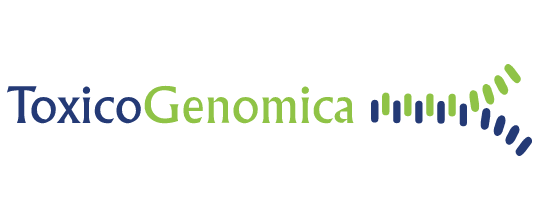DOWNLOAD NOW
Slides from Perrin Conferences Webinar July 2023

ToxicoGenomica recently presented a webinar organized by Perrin Conferences and the slides are now available for download. The webinar focused on the latest publications, scientific studies, and statistics regarding genomics role in cancers. It also covered predictive software and other tools for understanding the impact of germline mutations on disease development and progression. The speakers also reviewed the cost/benefit analysis of varying levels of genomics testing and what data is often already available in the medical records. This is the first in a series of three posts, with additional posts coming over the next several weeks. A summary of a part of the webinar is presented below, and to download a complimentary copy of the slides, please complete the form at the bottom of this page.
The Importance of Germline Mutations for Many Cancers: Stakeholders litigating causation for most any form cancer will want to consider important new research papers regarding the disease-causing impacts of pathogenic germline mutations. Dr. van Zyl’s slides provide an overview of papers in which researchers are providing genetic data showing that rare single nucleotide variants (SNVs) and other rare pathogenic germline mutations have even greater adverse effects than was previously believed regarding disease causation. Those effects include influencing or pre-determining somatic events during tumor initiation and progression. Those general rules apply for both cancer and non-cancer diseases/conditions.
The recent studies have become possible because of recent, massive projects involving studies of whole exomes or whole genome, such as the UK Biobank’s genomic studies of 500,000 people. Those genetic sequences are accompanied by anonymized medical records from the UK’s National Health Service. Because that data is now accessible to researchers, studies and resulting peer reviewed papers now are presenting data from comparisons of 10k-15k human genomes; those numbers far beyond prior studies. In fact, one paper compared an even larger group (30+k) of blood cancer genomes. The current flow of papers will expand because even more genetic data will arrive in the next few years due to genomic studies all over the world, including the All of Us project in the U.S. that is gathering medical records and whole genomes for 1 million people. It is inevitable that the vast sets of genetic and medical records data coming online will continue to increase the role of genomic analysis in toxic tort litigation.
CADD Scores Provide Quantitative, Objective and Reproducible Data Regarding the Deleterious/Pathogenicity of Germline Mutations: CADD is an acronym for a peer reviewed software tool that uses multiple algorithms as the method to calculate an objective, reproducible, quantitative score to assess the deleteriousness/pathogenicity of most but not all gene mutations (variants) in all genes. For all stakeholders in any cancer litigation, a CADD score provides a ranking metric useable to further confirm or dispute assertions regarding the presence or absence of genetic cause and effect. Use of CADD scores is supported by bioinformatic and medical professionals as useful for clinical decisions and for detailed assessments of the accuracy of mutation classifications that appear in ClinVar and other genomic databases. CADD scores for germline mutations in people with mesothelioma have been reported and relied upon by experts that include Drs. Carbone, Yang, Testa and Ohar. Dr. van Zyl’s slides provide detailed examples of CADD score calculations for particular BAP1 mutations.
Stay tuned for additional posts over coming weeks.
Slides from Perrin Conferences Webinar July 2023